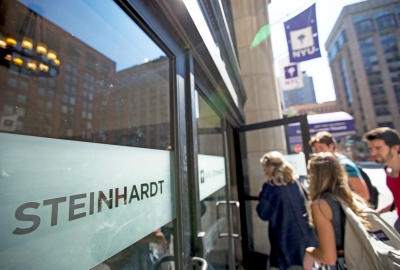This course dives into the captivating world of children’s literature to explore picture books as a sophisticated art form where visual and verbal storytelling converge. Students develop critical skills to analyze how illustrators use artistic techniques, visual metaphor, and pictorial language to convey complex ideas with emotional resonance; how contemporary picture books tackle sophisticated themes, social issues, and abstract concepts through distinctive visual styles; and why some of the classics remain favorites today. We delve into integrated approaches to instruction, leveraging children’s books to augment lesson planning, establish cross-disciplinary entry points into subjects, and identify literary genres. While useful for educators, the course is designed for anyone interested in visual storytelling, art appreciation, or the intersection of fine art and narrative.
Course #
ECED-UE 1124
Credits
3
Department
Teaching and Learning


